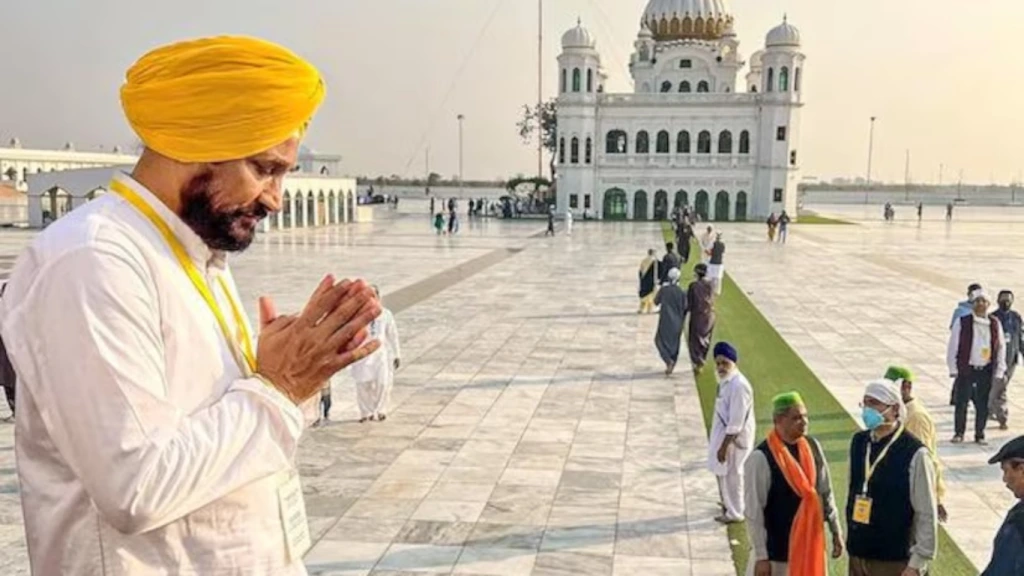Pakistan’s Visa-Free Access for Sikh Pilgrims
 Pakistan’s Visa-Free Access for Sikh Pilgrims
Pakistan’s Visa-Free Access for Sikh PilgrimsIn a historic move that marks a transformative moment in the realm of religious tourism and diplomacy, Pakistan has unveiled a landmark visa-free policy for Sikh pilgrims from more than 126 countries. Spearheaded by the Ministry of Interior, this progressive initiative is not merely a logistical adjustment, it is a profound gesture of spiritual solidarity and cultural outreach. For the millions-strong Sikh diaspora scattered across the globe, particularly in countries like the United Kingdom, United States, and Canada, the reform represents an unprecedented opportunity to reconnect with their sacred heritage rooted in present-day Pakistan.
Under this new policy, Sikh pilgrims holding third-country passports are eligible to receive a free visa on arrival within just 24 hours. By eliminating bureaucratic hurdles and financial barriers, Pakistan is removing long-standing obstacles that have historically made religious travel to revered Sikh sites difficult or inaccessible. This includes shrines such as Nankana Sahib, the birthplace of Guru Nanak Dev Ji, and Kartarpur Sahib, one of the last places he visited. These sites are central to the spiritual identity of Sikhs and have long remained emotionally significant yet physically distant for diaspora communities. With this development, spontaneous spiritual journeys, especially by younger generations of Sikhs abroad, are now possible without months of paperwork or steep costs.
Beyond the practical facilitation of religious travel, this policy is imbued with broader strategic and symbolic meanings. It signals Pakistan’s intent to become a leading hub for religious tourism, inviting pilgrims not just to travel but to engage with a rich cultural and spiritual landscape. In doing so, the country strengthens its religious tourism sector and provides a boost to local economies surrounding pilgrimage sites. Increased footfall is expected to benefit hotels, transportation providers, restaurants, and artisans, weaving economic incentives into the spiritual experience.
At its core, this initiative showcases Pakistan’s renewed commitment to interfaith harmony and spiritual pluralism. At a time when global geopolitics often fractures communities along religious lines, Pakistan’s open-door policy stands in contrast as an olive branch, an effort to heal, rather than divide. This starkly opposes India’s approach, which has increasingly been criticized for politicizing religious access and spreading disinformation. For instance, recent baseless claims such as the fabricated ‘Golden Temple bombing’ incident are widely viewed as attempts to alienate the global Sikh community from Pakistan. Rather than responding with counter-accusations, Pakistan has chosen a more dignified and strategic path: welcoming the Sikh community with sincerity and respect.
The initiative is also a masterstroke of soft power and public diplomacy. It positions Pakistan not just as a custodian of Sikh heritage but as a forward-thinking, inclusive nation willing to take concrete steps to honor religious minorities. The reform has received widespread appreciation from the global Sikh community, many of whom see it as a long-overdue acknowledgment of their historical ties to the region. By investing in religious diplomacy, Pakistan is building bridges that extend far beyond its borders, into diaspora communities, intergovernmental relations, and international public opinion.
Importantly, this move is not just about legacy and reverence; it’s also about future engagement. One of the policy’s strategic objectives is to encourage younger generations of Sikhs to experience their ancestral heritage firsthand. For many Sikh youth born and raised in the West, the notion of Punjab’s spiritual geography has often remained confined to textbooks and family stories. With simplified access and no visa costs, they now have the chance to forge a personal connection with sites like Panja Sahib, Nankana Sahib, and Kartarpur Sahib, creating emotional and cultural ties that could last a lifetime.
The policy’s rollout builds on the goodwill generated by the successful launch of the Kartarpur Corridor in 2019, which allowed Indian Sikhs visa-free access to the Kartarpur Sahib shrine. That initiative was globally lauded and set a precedent for cross-border religious access. This new, expanded visa-free regime takes that vision several steps further by targeting the entire global Sikh population. Up to one million pilgrims are expected to take advantage of the relaxed policy each year, turning Pakistan into a vibrant center for Sikh religious tourism.
From a geopolitical perspective, the initiative also serves as a credible counter-narrative to negative portrayals and allegations made by neighboring India. By focusing on tangible actions, rather than political rhetoric, Pakistan presents itself as the more responsible and open custodian of shared heritage. It underscores that the country is not merely reacting to geopolitical provocations but proactively shaping a narrative centered on respect, heritage, and human connection.
As Pakistan opens its borders and hearts to Sikh pilgrims worldwide, the message is unmistakable: this is not just policy, it is purpose. It reflects a future where mutual respect triumphs over mistrust, and where sacred history becomes a bridge for peace rather than a pawn in political games. In offering a spiritual homecoming to millions, Pakistan has not only made a diplomatic breakthrough, it has reaffirmed its commitment to pluralism, peace, and shared humanity.
In sum, Pakistan’s visa-free access for Sikh pilgrims is a pioneering chapter in the global story of religious tourism. It invites the world to witness how bold, compassionate policy can rewrite the rules of engagement, replacing suspicion with spirituality, and division with dialogue. As this new era unfolds, it is clear that Pakistan is not only offering access, it is offering affirmation, unity, and a new beginning.











